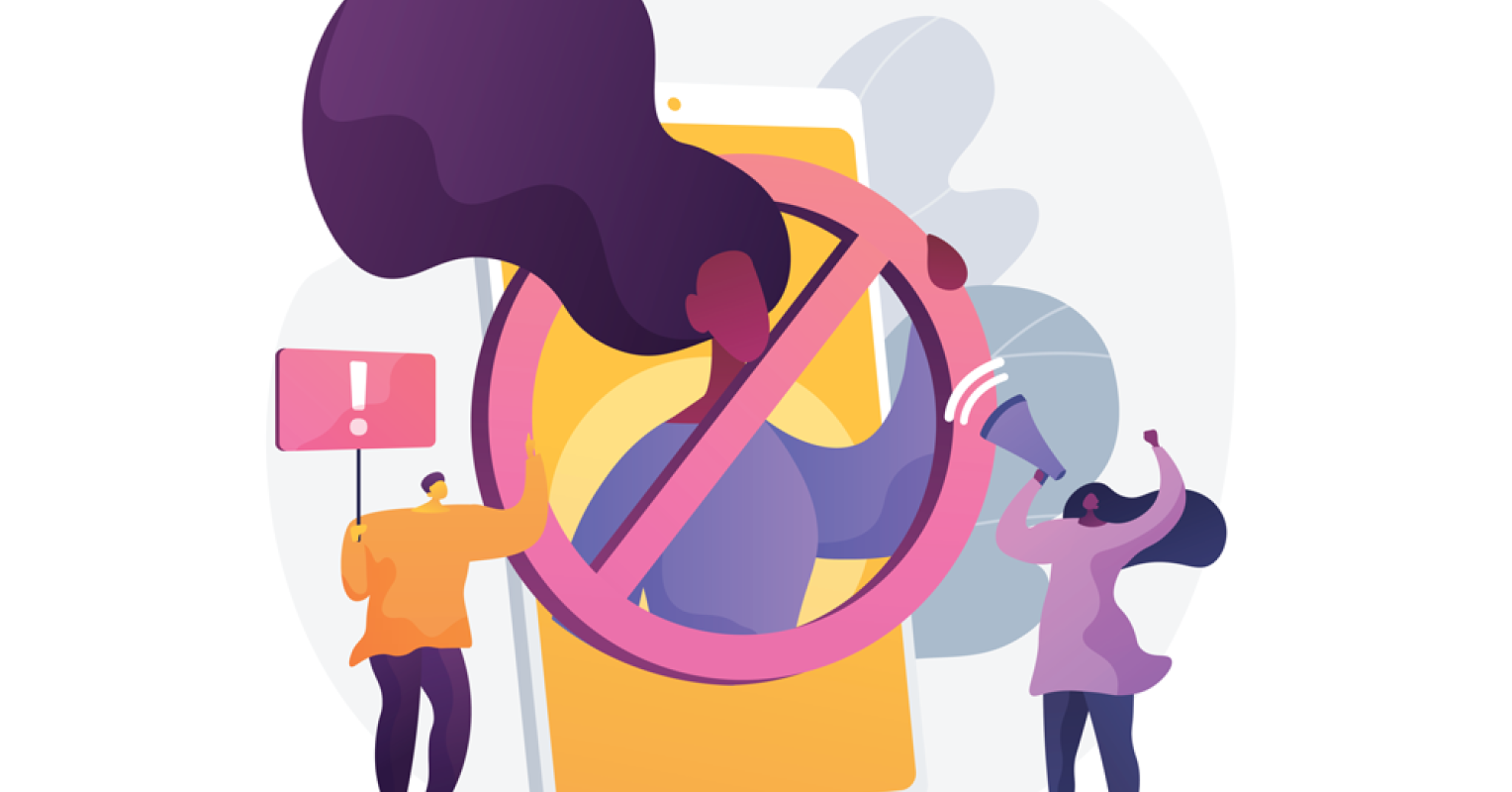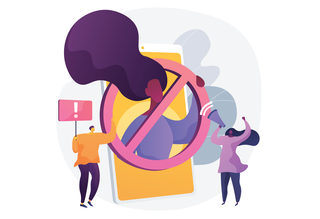
Cancel Culture: Accountability or Bullying?
What do we teach kids when we condone public shaming?
Cancel Culture: Accountability or Bullying?
What do we teach kids when we condone public shaming?

Don’t agree with them? Find them offensive? Don’t like them? Cancel them! Cancel culture is pervasive. Publicly "canceling" or calling out someone for words or actions that you find offensive, disagree with, or just plain don’t like is everywhere. It can be simple finger-pointing or a coordinated demand for retribution for alleged transgressions, urging the audience to join in and add their voice to hasten the severe penalties of social ostracization.
It started as a means of social change, a way of speaking individual truths to positions of power. But where it was once focused on authority figures, public humiliation and shaming have become the "go-to" means of voicing disapproval, real or imaginary, against anyone. It’s gone from social issues to personal ones, from celebrities to classmates. We have a big problem if this is how we’re teaching our kids to deal with problems and each other. Cancel culture has turned into bullying with a cooler name. It promotes ostracization over education, condemnation over compassion, and is deaf to redemption and change.
Cancel culture is polarizing. It gained political overtones as name-calling and labeling became embedded in social discourse, sometimes from the very people we should be able to look up to. The banner of "canceling" provides a smokescreen that distracts us from fundamental moral issues by embroiling us in an emotionally charged event.
Thanks to the ubiquity of social media, canceling someone has a broad reach and can do a lot of damage. It has become so prevalent that it is now common among kids where it bears very little resemblance to social justice. However, it is a very effective tool for wreaking psychological and social havoc when kids are very vulnerable due to the normal developmental and healthy need to fit in, be liked, and have friends.
Cancel culture has long historical roots even if the name is new. Boycotting and "outing" transgressions can do some good, such as during the civil rights protests and #MeToo. However, the same tactics have also been used to scare people into submission and punish enemies, such as the Salem witch trials and the McCarthy-era Red Scare.
It preys on people's tendency to jump on the bandwagon and join in an activity because others are doing it, not because of evidence. Participation is motivated as much by fear-of-missing-out or fear of being targeted for not supporting the cause as by higher values. Kids are especially likely to "join the crowd" because the threat of social exclusion is no small one at that age. Social exclusion is experienced as real pain, and it takes a very strong sense of self to stand against a pack. It’s rare enough in adults.
The most damaging aspects of the current cancel culture are twofold:
- First, cancel culture is all or nothing. It gives no room for change and growth over time, accepting responsibility and learning. No opportunities for the Prodigal Son here.
- Second, and perhaps more important, we are teaching kids that it’s OK—cool even—to attack those we disagree with, find annoying, or dislike. Under the banner of accountability, we are accepting public shaming and bullying as acceptable behavior for navigating power differentials with no attention to values and purpose.
For kids, cancel culture happens fast and rarely with any explanation. The range of cancelable offenses among teens is subjective and changes continuously. An offhand remark can trigger full-scale retribution that devolves into personal attacks and threats. It’s what happens in the pop-culture world, so why not in middle school or high school? Being canceled can dismantle a teen's entire social network. It isn’t just missing Friday night's party. It is becoming an object of scorn. Teens will tell you, once you're canceled, it can be hard to come back. No one questions what actions got you canceled, but everyone worries about being connected to you in case they become canceled, too.
How Can Parents Help Teens Navigate Cancel Culture?
Open communication and education. News stories about cancel culture make great conversation starters. Use them to find out what your kids think and if they are aware of it happening among their friends or at their school. Having an open conversation about what happened to someone else provides a safe space for kids to talk about a subject without having to disclose what is happening to them. It also provides a way to discuss strategies for dealing with it.
Listen empathetically. While cancel culture moves fast, don’t dismiss your teen’s anxiety, pain, and angst. Don’t say, “Oh, it will all be over in a week.” A week seems like a lifetime when you're a young teen.
Compare canceling and cyberbullying. There are lots of questions you can ask around this. For example, why would canceling be used with good intentions? Teens often feel like others should be called out for insulting behavior. Is there a way to acknowledge someone’s faults or mistakes and work with the individual to prevent the mistake from happening again? Is it OK to condemn someone based on one mistake? What would it mean to be “called in” instead of “called out?” Calling people out is unlikely to fix any issue, change attitudes, or improve behavior.
If Your Child Is Canceled
Empower your teen to take action with some good conflict resolution skills. And remind them that they are targets, not victims. Victims are weak. Acknowledge their pain and shame but reframe them: Those negative emotions are about the bully’s needs and shortcomings.
Don’t wait for something bad to happen. Investing early and often in conversations with your kids means that they will be comfortable coming to you if trouble does occur. If they fear you will freak out or take their phone, they won’t. Remind your teen:
- Don’t retaliate—that is an emotional tendency that that just gives the bullies what they want.
- Document the harassment with screenshots and then delete them.
- Block the offender.
- Identify responsible adults and authority figures they can go to report the experience.
If Your Child Is Canceling Others
- Find out why. Communicate, don’t scold.
- Talk through the situation and brainstorm other approaches; try perspective switching.
- Looks for signs of low self-esteem or need for attention so you can address the root cause rather than the symptoms.
- Provide meaningful and limited consequences.
- Monitor the situation. There are lots of places to get professional help if you need it.
